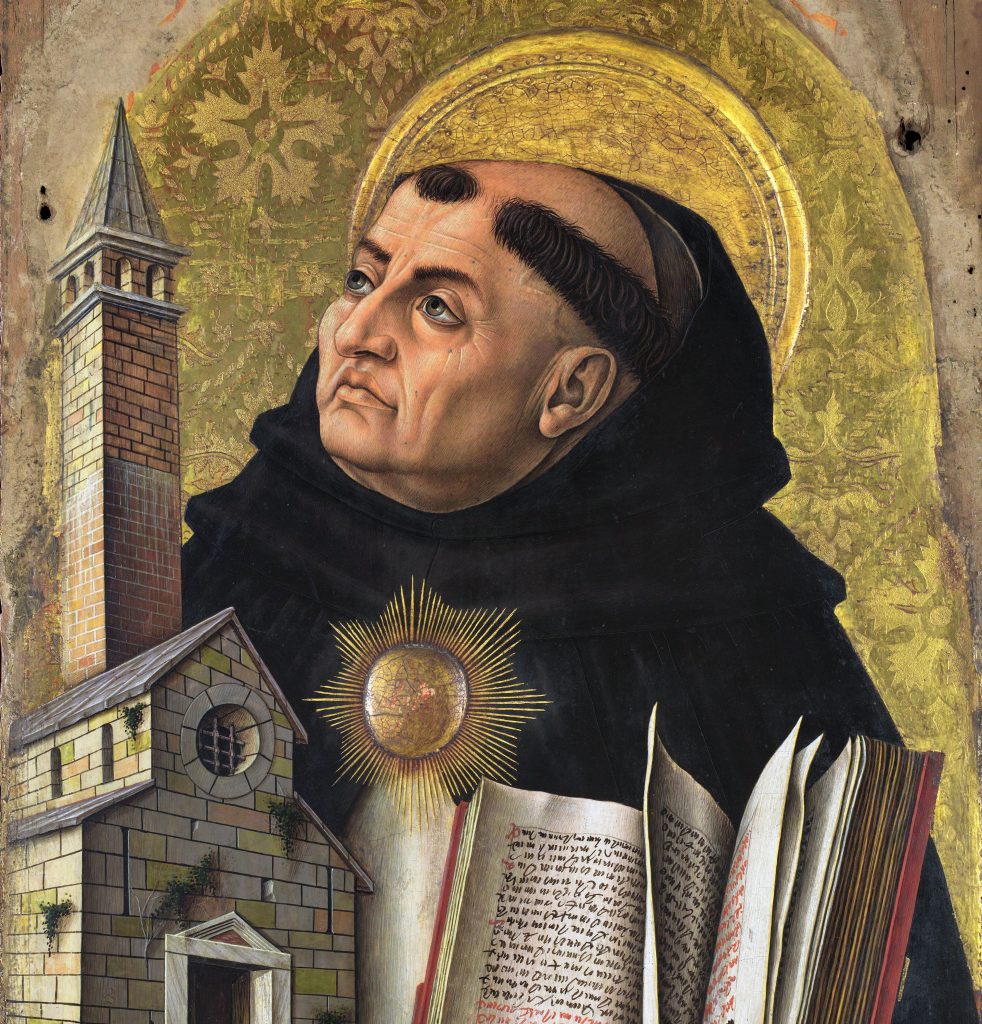Our Mission
“Welcoming everyone to proclaim and live the joy of the Gospel”
We the members of St. Thomas Aquinas parish are a welcoming community of diverse Christians who are called to: proclaim the Good News of Jesus Christ, seek spiritual growth, provide compassionate outreach, share our time, talents and treasure wisely, and celebrate our faith through the liturgy and sacraments of our Roman Catholic Tradition.
Our Patron
Feast Day: January 28
Life of St. Thomas

Saint Thomas Aquinas was born in 1225 in Poccasecca near Aquino, Italy. He was teacher, philosopher, scholar. St. Thomas was one of many children of a wealthy, aristocratic family, and devoted his entire life to understanding God—through reason, contemplation, and prayer. St. Thomas went to school at Monte Cassino Abbey and at the University of Naples. In 1244, he entered the religious order of the Dominicans. Later on, St. Thomas went to University of Paris to study with the renowned Aristotelian scholar, Albert the Great. In the year 1256, he received the degree of a Master in Theology.Thomas wanted to become a mendicant friar— not the kind of life that was expected from a person of nobility. His family was so outraged at his wishes that they kidnapped him and sheltered him for a year. But, that didn’t change the mind of Thomas.
The rest of his life was spent teaching, preaching and above all writing. His writing included works on scripture and the sacraments. Among the most famous: The Summa Contra Gentiles (1259-64), a treatise on God and his creation, and the Summa Theologica (1266-73), the classical systematic exposition of theology. He was involved in every major intellectual debate of his time. In his teachings and writings, Thomas made efforts to bridge the gap between faith and reason. He took on St. Augustine and the pagan Aristotle, and sought to reconcile the secularism of the world with the radical nature of the Gospel. He sought to shed light on the greatest theological debates, including the Eucharistic controversies of the Middle Ages. Thomas was a man of intense prayer. He always resorted to prayer when he was unable to understand something. He also was an introvert. He spent most of his time alone. His favorite recreation was to walk around the cloister on his own. Physically, Thomas was a large man, tall and obese with delicate skin, and light brown hair. Thomas had been asked by the Pope to assist at the forthcoming Council of Lyons, due to begin in May, 1274. It was said that Thomas had been invited to the Council because he was considered to be one of the wisest and holiest men in the world, but on the journey to Naples, he became very ill. Thomas died in 1274 and was canonized in 1323.
He didn’t become a saint by the number of miracles he performed. In fact, at the time of his canonization, so few miracles could be found in his life that it was raised as an objection against canonizing him. St. Thomas’ sainthood was vested in his intellectual service of God rather than in the sort of display of supernatural power which attracted most people’s attention. He was proclaimed a Doctor of the Universal Church in 1567.

